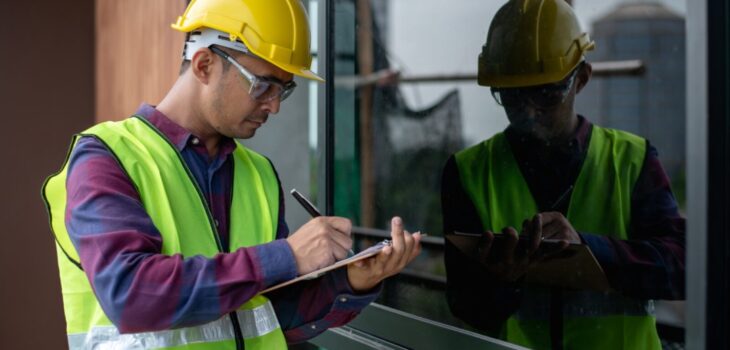 General
General
What to Do Before a Building Inspection: A Comprehensive Guide
- by elexrathore
When you’re preparing for a building inspection, it’s easy to feel a bit anxious. Whether you’re a homebuyer, seller, or landlord, getting everything ready for an inspection is essential. Knowing what steps to take can help ensure that the inspection goes smoothly and you avoid any unexpected surprises. This guide walks you through the key actions to take before the inspection, along with some tips to help you feel more confident.
Why Preparing for a Building Inspection Matters
A building inspection is one of the most important steps in a property transaction or property maintenance. The inspector will look for issues related to the structure, safety, plumbing, electrical systems, and more. If you’re a seller, taking the time to prepare can help you present your property in the best light. For buyers, being prepared ensures that you get an accurate report, so you can make an informed decision.
1. Organize Access to All Areas
One of the first things to do before the inspection is to make sure the inspector has easy access to all parts of the property. This includes areas that are sometimes overlooked, like the attic, basement, crawl spaces, and the roof.
How to Ensure Proper Access:
- Clear Obstructions: Remove any items blocking doors, gates, or access points to these areas.
- Ensure Exterior Accessibility: If there are ladders needed to reach the roof or attic, ensure they’re available.
- Unlock Areas: Make sure any locked areas, such as garden sheds, garages, or storage rooms, are unlocked so the inspector can access them easily.
Having everything easily accessible allows the inspector to do a thorough job and helps avoid delays during the inspection.
2. Fix Minor Issues
While the inspector will primarily focus on major structural issues, it’s a good idea to take care of any minor repairs ahead of time. Fixing small problems can help prevent unnecessary concerns from cropping up during the inspection.
Common Issues to Address:
- Leaky Faucets: Even small leaks can indicate bigger plumbing issues.
- Loose Railings: Ensure stair and deck railings are secure.
- Broken Windows or Screens: These may not affect the structural integrity, but they could be flagged as a maintenance issue.
Addressing these minor issues can create a better impression, showing that the property has been well cared for.
3. Clean and Declutter
A clean and clutter-free home allows the inspector to do their job more easily and may give you an opportunity to identify any issues before they become an issue. It also ensures that the inspector can access important areas like electrical panels and circuit breakers.
Quick Cleaning Tips:
- Remove Clutter: Clear spaces around electrical panels, water heaters, and HVAC units.
- Clean Vents and Ducts: Dust can hide issues such as blocked airflow.
- Mop Floors and Wipe Surfaces: A clean environment will not only help the inspector but may also give a better overall impression to potential buyers.
4. Prepare the Exterior of the Property
The exterior of your property is just as important as the interior. Before the inspection, take a look at the outside of the building and check for any visible issues. The inspector will typically look for problems with the roof, foundation, and siding, so it’s important that these areas are clear of debris and easy to inspect.
Exterior Checkpoints:
- Gutters and Downspouts: Make sure they are clean and properly attached to the house. Clogged gutters can cause water damage.
- Roof Inspection: If accessible, remove any branches or debris from the roof that could obstruct the inspection.
- Foundation: Look for visible cracks or signs of shifting. If there’s a visible issue, you might want to address it beforehand.
5. Review the Electrical System
The inspector will pay close attention to the property’s electrical system to ensure it meets safety standards. Before the inspection, make sure that the electrical panels are accessible and that all circuit breakers are functioning.
Things to Check:
- Panel Access: Clear any items blocking the electrical panel.
- Power: Ensure the electricity is on and there are no obvious problems like flickering lights or exposed wires.
By ensuring your electrical system is in good working order, you’ll avoid unnecessary scrutiny.
6. Be Available for Questions
While you don’t need to shadow the inspector throughout the process, it’s helpful to be available if they have questions or need clarification. Being responsive helps the inspector do their job more efficiently and gives you the opportunity to explain any recent repairs or upgrades.
What You Can Do:
- Stay Nearby: If the inspector needs to ask questions about the property, being available will make the process smoother.
- Have Documents Ready: If you’ve made any recent repairs, gather receipts or permits to show that work has been done properly.
7. Know What the Inspector Will Look For
Understanding what the inspector will focus on can help you prepare more effectively. Typically, they will examine:
- The Foundation: Cracks, shifting, or moisture issues.
- The Roof: Condition of shingles, flashing, and ventilation.
- Plumbing and Electrical Systems: Water pressure, leaks, and electrical safety.
- HVAC System: Heating and cooling systems, ductwork, and filters.
The more you know about the focus areas of the inspection, the better you can address any potential issues ahead of time.
Pest Inspections Brisbane: A Smart Step Before Your Building Inspection
Apex Property Inspections is a trusted name when it comes to thorough pest inspections Brisbane. Their team of experienced professionals specializes in detecting hidden pest problems that may go unnoticed during a standard building inspection. As pests can cause significant damage to a property’s structure and become a costly issue in the long run, having a detailed pest inspection before your building inspection can provide peace of mind. By including a pest inspection in your preparation process, you’ll be ensuring that all potential risks are identified and addressed early, allowing you to make informed decisions whether you’re buying, selling, or maintaining a property.
FAQs About Building Inspections
- Do I need to be present during a building inspection? It’s not necessary for you to be there, but it can be helpful. If you’re a seller, being available can allow you to clarify questions or provide more information. For buyers, it gives you a chance to ask the inspector questions directly.
- How long does a typical building inspection take? A typical building inspection takes around 2 to 4 hours, depending on the size and condition of the property. Larger homes may take longer to inspect thoroughly.
- What happens if issues are found during the inspection? If the inspector finds problems, they will document them in a detailed report. This allows the buyer to make an informed decision or request repairs before moving forward with the purchase.
- Can I do the inspection myself? While you can do a simple walk-through and spot obvious issues, a professional inspector has the training and tools to spot hidden problems. It’s best to leave the inspection to the experts.
- How much does a building inspection cost? The cost of a building inspection typically ranges from $300 to $600, depending on the location, size of the property, and the type of inspection.
Preparing for a building inspection doesn’t have to be a stressful process. By following these simple steps—organizing access, taking care of small repairs, cleaning, and ensuring the property is ready for scrutiny—you can help ensure that the inspection goes as smoothly as possible. This preparation also gives you the best chance of addressing any issues that could arise before they become a bigger problem.









